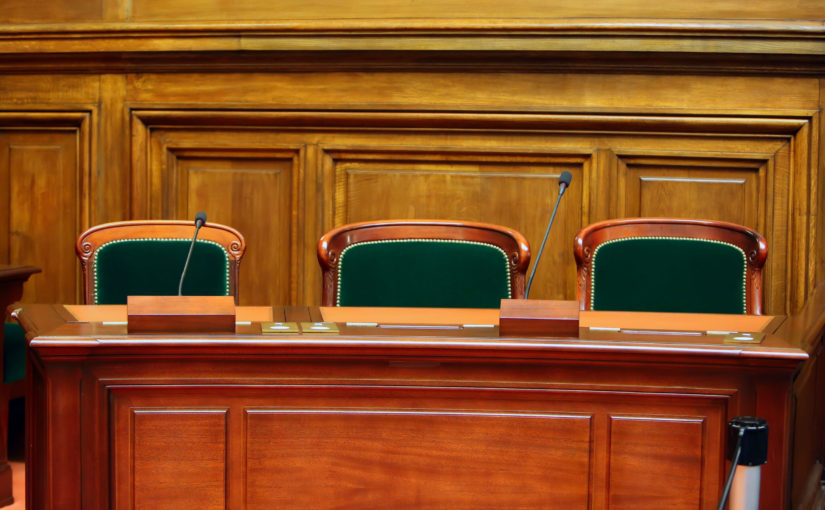Michigan Supreme Court Issues Administrative Orders Affecting Courts and Cases During the COVID-19 Crisis

The Michigan Supreme Court has issued several Administrative Orders since the outbreak of the COVID-19 crisis which impact the operations and procedures of courts and court cases across the State of Michigan.
Administrative Order No. 2020-2: Limiting Activities/Assemblages in Michigan Courts
On March 18, the Michigan Supreme Court (the “Court”) issued Administrative Order No. 2020-2, limiting assemblages and activities in courts across the State of Michigan. The order, which supersedes all previous actions taken by all Michigan courts on a local basis, comes in response to the growing COVID-19 crisis. The order is in effect until April 3, 2020.
The order applies to all circuit, district, and probate courts in Michigan. It provides that “courts are ordered to limit access to courtrooms and other spaces to no more than 10 persons, including staff, and to practice social distancing and limit court activity to only essential functions….” Similar actions, resulting in restricted courthouse access, continuing trials, cancelling non-case related activities, and rescheduling or permitting videoconferencing of oral arguments, have been taken in state and federal courts across the country in order to help stop the spread of the COVID-19 virus.
In the order, the Court outlines what it deems “essential functions” that can continue in the circuit, district, and probate courts, respectively. With respect to general civil and business court cases taking place in the circuit courts, which constitute the bulk of the cases our firm handles on behalf of clients, the essential functions that can proceed include infectious disease proceedings under MCL 333.5201 et seq., and limited proceedings regarding personal protection orders. All other civil and business court matters, including trials, must be conducted remotely using two-way interactive video technology or other remote participation tools or they must be adjourned until after April 3, 2020.
Until the order is lifted, courts have been instructed to work with county clerks to ensure that if in-person filing of court pleadings is limited due to the state of emergency, pleadings can be accepted for filing by other means, such as U.S. mail, e-Filing, email, or facsimile.
Administrative Order No. 2020-3: Extending Deadlines for Commencement of Actions
On March 23, the Court issued Administrative Order No. 2020-3, extending all deadlines applicable to the commencement of all civil and probate case-types. This order extends all deadlines pertaining to case initiation and the filing of initial responsive pleadings in civil and probate matters during the state of emergency declared by Governor Gretchen Whitmer related to COVID-19. The order does not preclude a court from ordering an expedited response to a complaint or motion in order to hear and resolve an emergency matter requiring immediate attention. It also does not prohibit or restrict a litigant from commencing a proceeding whenever the litigant chooses.
Administrative Order No. 2020-4: Suspending Filing Deadlines in the Michigan Supreme Court and Court of Appeals
On March 26, the Court issued Administrative Order No. 2020-4, suspending, effective as of March 24, all filings, jurisdictional and non-jurisdictional, in the Michigan Supreme Court and Court of Appeals. Filings will be tolled until the expiration of Governor Whitmer’s Executive Order 2020-21 (the stay-at-home order) or a subsequent executive order that extends the period in which citizens are required to suspend activities that are not necessary to sustain or protect life. Filers will have the same number of days to submit their filings after the executive order expires as they had before the suspension went into effect.
We are actively communicating with our clients to inform them regarding any delays in their cases due to administrative actions taken by the courts in light of the COVID-19 crisis, and will continue to do so moving forward.

